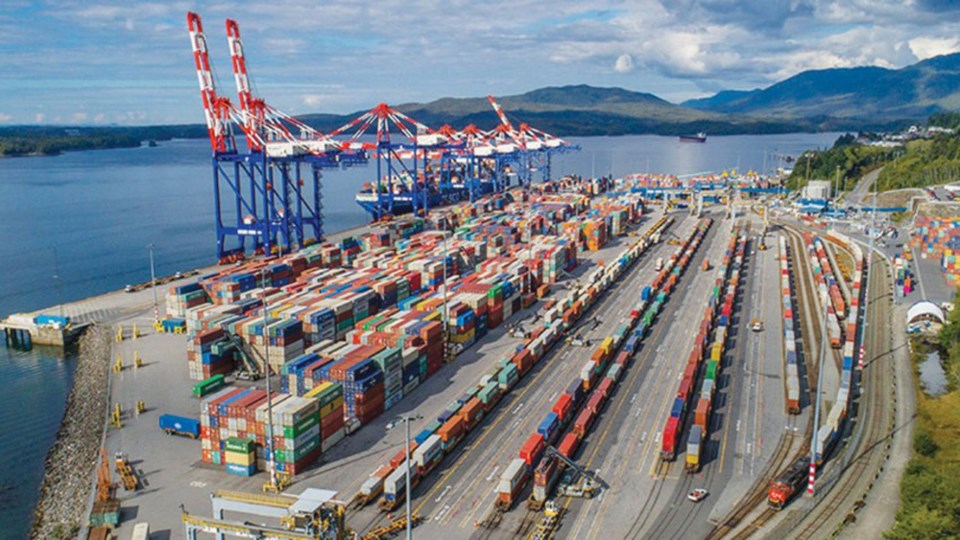On Friday the B.C. government announced plans to help make the Port of Prince Rupert “the greenest port in Canada.”
B.C. Minister of Jobs, Economic Development and Innovation Brenda Bailey announced the expansion of the province’s Integrated Marketplace initiative to include the northern B.C. port, which is Canada’s third-largest seaport. The initiative will allow the port to source and test innovative technology to reduce greenhouses gas emissions, increase productivity and improve safety.
"Sixty billion dollars worth of cargo flows through the Prince Rupert gateway each year and we are committed to advancing B.C.'s homegrown technology that reduces the environmental impacts of the port operations that enable that trade," port authority president and CEO Shaun Stevenson said. "Through this partnership, the Integrated Marketplace will help us build a safer, more resilient and sustainable port that can support British Columbia and Canada's trade demands and ambitions well into the future."
Key areas the initiative will focus on will include electrification of equipment and using alternative fuels, improving the port design and infrastructure, reducing emissions from idling vehicles and equipment, improving digital technology and increasing supply-chain capacity and resilience.
"Transportation is the province's largest source of greenhouse gas emissions. Bringing the Integrated Marketplace to the Port of Prince Rupert is a great way to promote creative solutions and aligns with our StrongerBC and CleanBC goals to build a cleaner economy,” Transportation Minister Rob Fleming said. “I look forward to the projects that are developed from the initiative to reduce greenhouse gas emissions and allow us to optimize this fundamental component of our supply chain."
The $11.5 million initiative was launched in December at the ¬È∂π¥´√Ω”≥ª≠International Airport, to help it meet its net-zero emission commitment by 2030 and become the world’s “greenest airport.”



